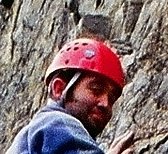The Simplest of Questions - Thoughts on the Afghan War

On the 25 of August in 2009, 14 Afghan National Police members stole three Ford Rangers, took their weapons, and deserted from their posts at Neshin Castle. Just over a week later, 8 ANP members took a truck from the same outpost and deserted. A note in the military dispatch detailing the desertion states matter-of-factly that they deserted because they hadn’t been paid. NATO and the United Nations have been in Afghanistan for nearly a decade trying to build the civil structures of a functioning nation and they still can’t pay the police officers. These stories and others are detailed in over 90,000 short and terse military dispatches leaked to Wikileaks last week. The overall picture is grim. High civilian casualties, constant combat and disorder, and the systematic failure of institution-building come across in the acronym laden field reports. In the section focusing on defections, it is interesting to note that along with ANP desertions have been the surrender and defection of (sometimes) large groups of insurgents.
When the media portrays the war as a clash of civilizations and a battle between Islamic fundamentalism and the auspices of modern democracy, the field reports tell a different story. Alliances and allegiances in Afghanistan are weak and shift on a regular basis. The questions in the minds of Afghan (including those ANP members) are not of grand scale ideological conflict. They are the questions one would expect of anyone who has been trying to live in a country torn by war for nearly half a century: How do I keep a roof over my head? How do I feed myself and my children? How can I avoid getting killed. The ANP members did not swear allegiance to the Taliban and go off to fill their ranks. They left because they weren’t being paid and could not make a living. A dispatch tells of a group of around 40 insurgents who, after their Mullah had been killed, surrendered to US forces because they were tired of “running and hiding.” They didn’t admit that they were misguided and now accepted the West’s philosophy. They just wanted the fighting to stop.
Since the invasion and defeat of the Taliban government in 2001, NATO and the UN have imposed a top-down enforcement of institution-building in Afghanistan. Basically importing Karzai to head things and going to Warlords (some of the worst human rights violators in the world) and giving them cash and government posts. The hope seems to have been to drop a Western government from the sky onto the country and hope that it would take root. The result has been widespread corruption and nepotism. Warlords languish in their riches, accumulating more and more while the average Afghan has seen little to no improvement. In essence Afghanistan has gone from a vicious and genocidal (but predictable) dictatorship to a state of complete chaos where their lives depend on the whims of criminals and the aim of NATO fighter jets.
It is time for a rethinking of nation-building in Afghanistan. The top-down approach is not working and the basic needs of millions are still not being met. A story emerged recently (though it got very little publicity) of the success of a small Afghan community. The leaders of the town had realized that they couldn’t depend on the West for help against the Taliban and that they could depend on the Taliban to attack and conscript them so they decided on a grassroots approach. The community itself organized and trained a militia from their own ranks. To this day they have held off repeated Taliban attacks and secured their region without the help of Western aid. Their militia was referred to by an American commander as they most effective Afghan fighting force.
Take a man away from his family and town, put him in a uniform and give him a gun, put his life in constant danger, and don’t pay him anything. Chances are his support for your plans for his country will wane severely. Why shouldn’t those ANP members have deserted? What exactly were we doing for them? Take that same person, approach him in his town and offer him the basic tools for deciding his own destiny and trust can be built. It is not for us to decide what happens in Afghanistan. It is for the Afghans. An Afghan wants safety, peace and health as much as anyone else. Help is definitely needed and this is not a call for Western powers to pull out of Afghanistan. It is a call to truly, and for the first time, approach the Afghan people themselves and give them control. Undermine the Warlords and Taliban by building a horizontal base of grass-roots, village to village support. Let the villagers decide on the institutions they need and want and provide protection and support when they organize.
If anything can be said with certainty from any side of the political spectrum is that the Afghans have suffered enough. For us to replace tyranny with violent uncertainty and widespread cronyism is not helping. Let’s restart with the people and build from there.




